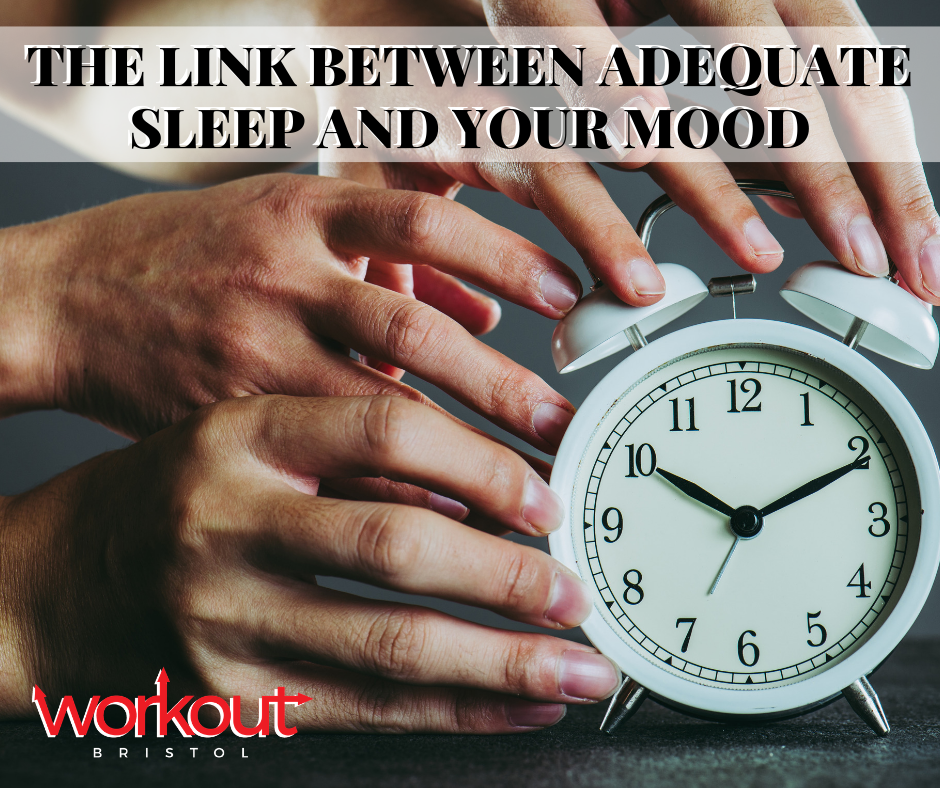
The Link Between Sleep and Mood
Quick Summary
Sleep and mood are closely connected; poor or inadequate sleep can cause irritability and stress, while healthy sleep can enhance well-being.
Chronic insomnia may increase the risk of developing a mood disorder, such as anxiety or depression.
Poor sleep and feelings of depression or anxiety can be helped through a variety of treatments, starting with improved sleep habits, and, if needed, extending to behavioral interventions and an assessment for a sleep or mood disorder.
Poor sleep can also effect your physical health and your day to day performance in your job or at the gym.
Ways to help yourself;
- Maintain a regular sleep-wake schedule
- Avoid caffeine, alcohol, nicotine, and other chemicals that interfere with sleep
- Make your bedroom a comfortable sleep environment
- Establish a calming pre-sleep routine
- Go to sleep when you're truly tired
- Dont watching the clock at night
- Use light to your advantage by exposing yourself to light during the day and limiting light exposure in the evening
- Dont nap too close to your regular bedtime
- Eat and drink enough—but not too much or too soon before bedtime
- Exercise regularly—but not too soon before bedtime
If problems persist, you may wish to see a medical provider and ask about an evaluation for sleep problems and mental health concerns. After an evaluation and diagnosis, your provider can advise you on the best course of treatment.
Even if you do not have underlying sleep problems, taking steps to ensure adequate sleep will lead to improved mood and well-being.
The Link Between Sleep and Mood
You probably know firsthand that sleep affects mood. After a sleepless night, you may be more irritable, short-tempered, and vulnerable to stress. Once you sleep well, your mood often returns to normal.
Studies have shown that even partial sleep deprivation has a significant effect on mood. University of Pennsylvania researchers found that subjects who were limited to only 4.5 hours of sleep a night for one week reported feeling more stressed, angry, sad, and mentally exhausted. When the subjects resumed normal sleep, they reported a dramatic improvement in mood.
Not only does sleep affect mood, but mood and mental states can also affect sleep. Anxiety increases agitation and arousal, which make it hard to sleep. Stress also affects sleep by making the body aroused, awake, and alert. People who are under constant stress or who have abnormally exaggerated responses to stress tend to have sleep problems.
Insomnia and Psychological Problems
There's a big relationship between psychiatric and psychological problems and sleep. So people who are depressed or have anxiety often have trouble with sleep as part of those disorders.
Difficulty sleeping is sometimes the first symptom of depression. Studies have found that 15 to 20 percent of people diagnosed with insomnia will develop major depression. While sleep research is still exploring the relationship between depression and sleep, studies have shown that depressed people may have abnormal sleep patterns.
Sleep problems may, in turn, contribute to psychological problems. For example, chronic insomnia may increase an individual's risk of developing a mood disorder, such as depression or anxiety. In one major study of 10,000 adults, people with insomnia were five times more likely to develop depression. Lack of sleep can be an even greater risk factor for anxiety. In the same study, people with insomnia were 20 times more likely to develop panic disorder (a type of anxiety disorder). Another study showed that insomnia is a reliable predictor of depression and many other psychiatric disorders, including all types of anxiety disorders
Addressing Sleep Problems Makes a Difference
If you sleep poorly and feel depressed, anxious, or less emotionally responsive, there are many treatments that can help. First, look at your sleep habits and see if there are steps that you can take on your own to improve the quantity and quality of your sleep, such as;
- Maintaining a regular sleep-wake schedule
- Avoiding caffeine, alcohol, nicotine, and other chemicals that interfere with sleep
- Making your bedroom a comfortable sleep environment
- Establishing a calming pre-sleep routine
- Going to sleep when you're truly tired
- Not watching the clock at night
- Using light to your advantage by exposing yourself to light during the day and limiting light exposure in the evening
- Not napping too close to your regular bedtime
- Eating and drinking enough—but not too much or too soon before bedtime
- Exercising regularly—but not too soon before bedtime
If problems persist, you may wish to see a medical provider and ask about an evaluation for sleep problems and mental health concerns. After an evaluation and diagnosis, your provider can advise you on the best course of treatment.
Even if you do not have underlying sleep problems, taking steps to ensure adequate sleep will lead to improved mood and well-being.







